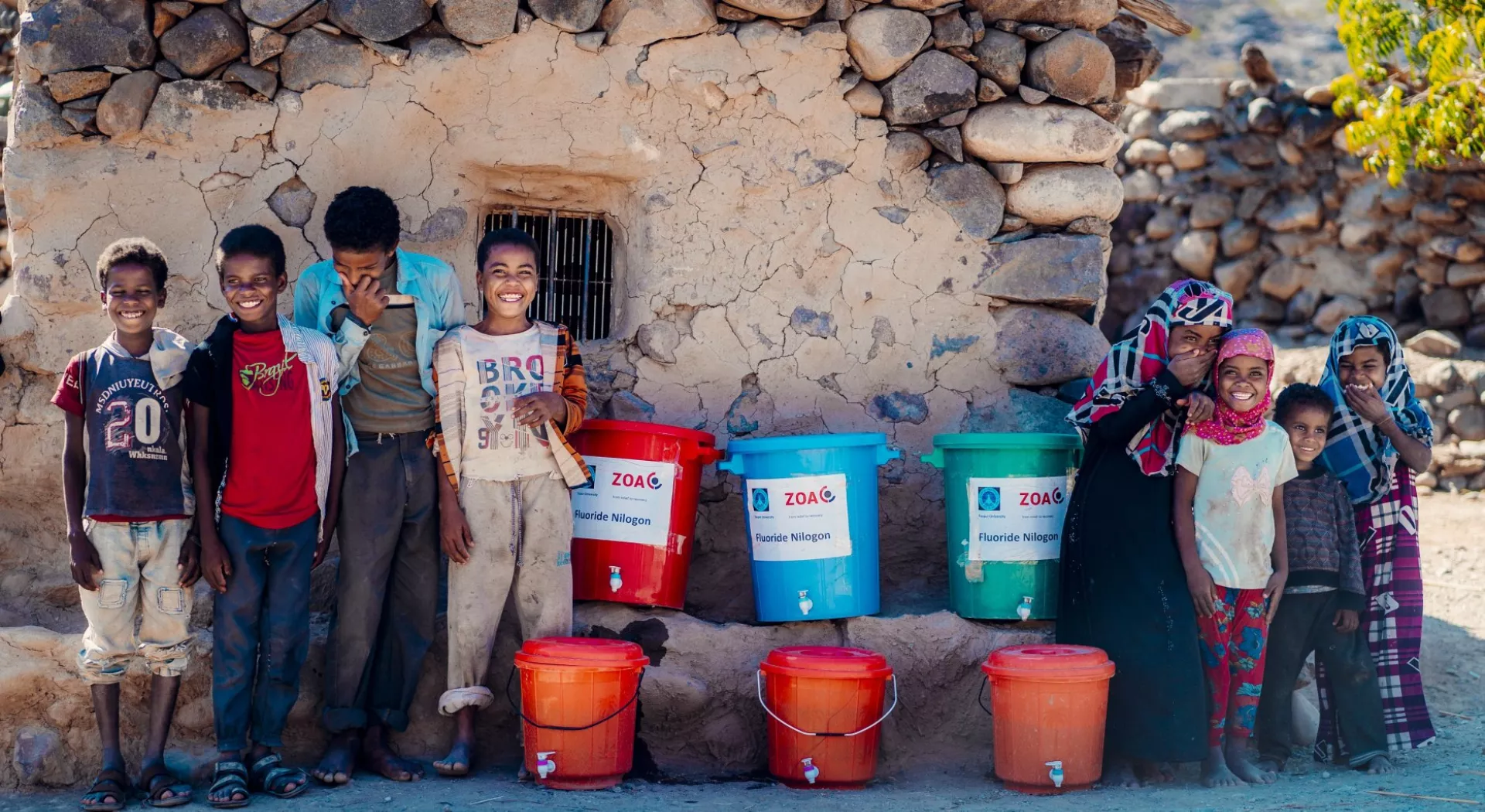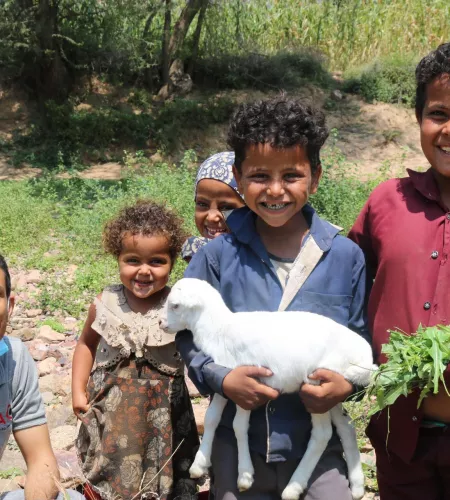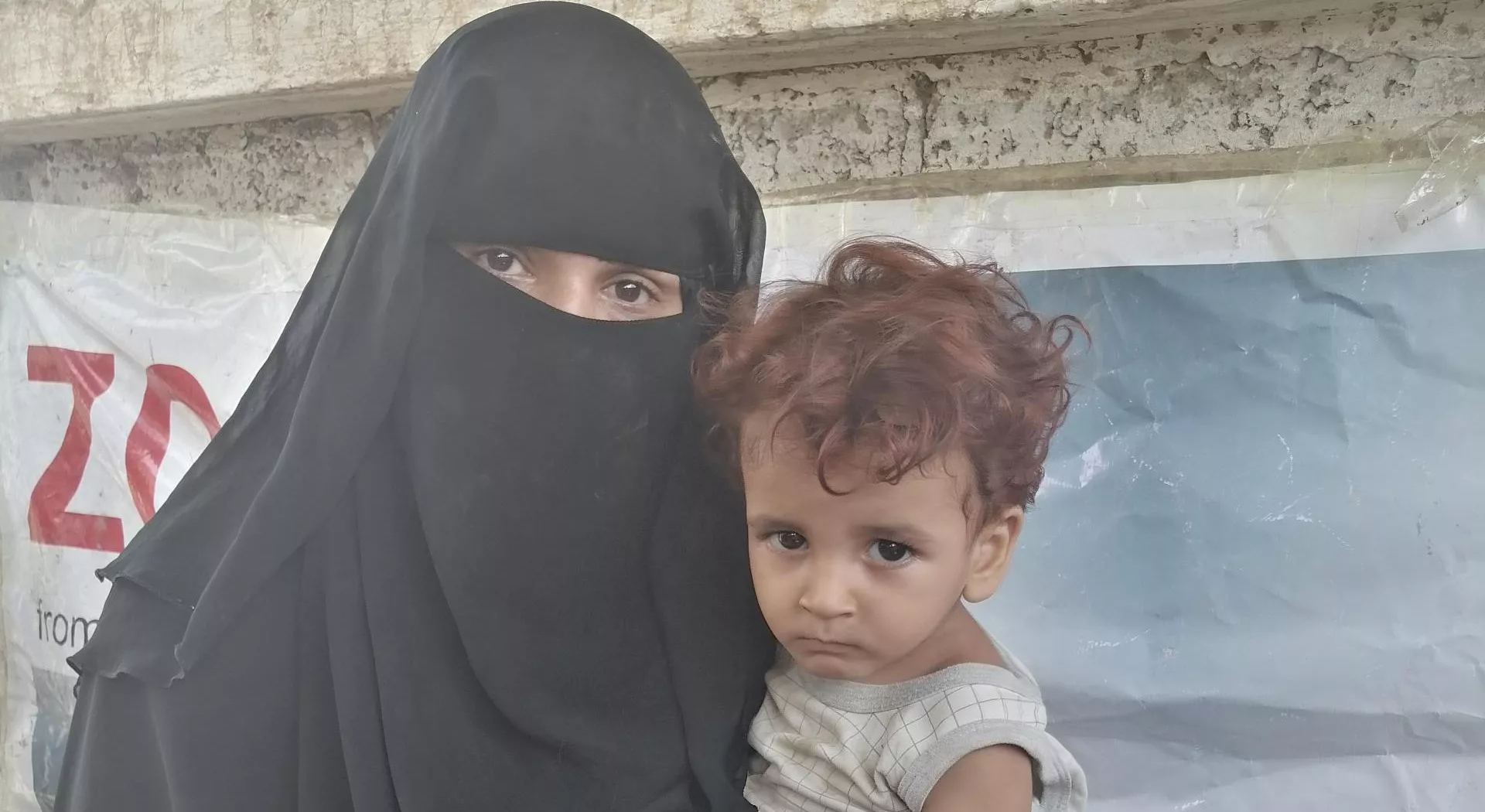Our primary focus is offering aid that combats hunger and thirst, preferably also in the long run. We focus on displaced persons and on the communities where they are received. Our approach combines food security and livelihoods interventions, WASH and cash based assistance. Our working areas are in the north of Yemen: Sana’a, Amran, Hajjah and Al Mahwit Governorates, and in the south of Yemen: Aden, Lahj and Al Dhale’e Governorates.

We are here in Yemen
In 2015, fighting broke out in Yemen. Now, nearly a decade later, Yemen is experiencing one of the worst humanitarian crises in the world. Over 4 million people have been displaced from their homes, and an estimated 17,1 million—almost 50% of the population—are facing food insecurity.
One of the worst humanitarian crises in the world
Integrated approach
Emergency relief and longer term recovery
ZOA has been working in Yemen since August 2012. Our work in Yemen is complex. And yet, we specifically want to be here. “The world has not forgotten Yemen, but is ignoring it", conclude ZOA staff members in Yemen. "We do not want to ignore Yemen. One of the world’s greatest crises, one that was called the greatest humanitarian disaster for years, should not be forgotten and certainly not ignored. We are here because we consider the Yemeni people. We are here because we can help. We are here because we are well positioned to help with a good team.”
Sustainable solutions in the field of WASH
Bad hygiene and a lack of clean drinking water pose a threat to vulnerable, malnourished people. That is why we make systems for collecting rainwater, construct water wells, and build sanitary facilities in schools, villages, and houses. ZOA uses solar powered pumps to run water pumping units that provide portable water to thousands of households. At household level, we repair rooftop rainwater harvesting structures. We also provide families with water tanks to supplement the water collected from communal systems.
Besides, colloidal silver water filters are given to families as a user-friendly mechanism for household water treatment. We also give training about the importance of good hygiene to prevent diseases like cholera. In our interventions, wealways pursue sustainability. In Yemen, instead of water trucking, ZOA prioritizes the rehabilitation and /or construction of water infrastructure like rainwater harvesting cisterns, community rainwater harvesting tanks, boreholes and pipe networks.
Watch a video on ZOA's water, sanitation and hygiene projects in Yemen:
The impact of our work in Yemen in 2023
With a team of 47 staff members, we directly supported 157,133 people
Food security and livelihoods
Emergency aid takes the form of cash assistance so people can determine for themselves which of their family’s needs are most pressing. We also have cash-for-work projects, which enable the restoration of basic community infrastructure and assets and give poor families a chance to earn income. Besides this, we support people to plant vegetable gardens.

Working together
Donors and partners
In Yemen, ZOA uses a dual implementation approach that includes direct implementation of project activities and partnership with local NGOs. Due to insecurity, some of ZOA’s programme areas are inaccessible to our staff. In situations like these, we use the experience, networks and credibility of local NGOs.
Our work is funded by the USAID BHA, Dutch Ministry of Foreign Affairs, UN-OCHA (Yemen Humanitarian Fund), the European Union, Stichting Mitswah, EO Metterdaad, ZOA Netherlands. In Yemen, ZOA works with partners like Responsiveness for Rehabilitation & Development Foundation (RRD) and the Sustainable Development Foundation (SDF).

Monia Hassan, Yemen

